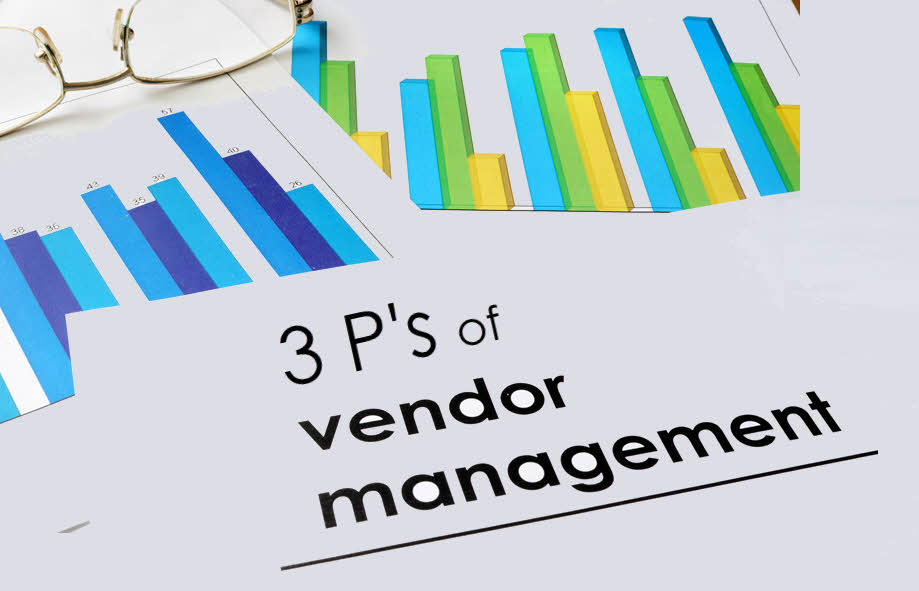
Among a CFO’s many duties is selecting and managing the company’s key vendors. Typically, these include banks and other capital providers, investment advisors, key software vendors, insurers, benefits and retirement services brokers, HR/payroll service providers, and audit and tax experts. Other than client relationships, these are often among a company’s most important business relationships. How does a CFO look at these key business partners, and how does he decide whether and when to make a change?
One-way CFOs will frame this question is in terms of the 3 P’s:
-
 Is this the right Partner: does this vendor add value through their expertise in my industry, and are they providing valuable advice and counsel? Many inexperienced service providers only know the features of their products or services and don’t understand how it benefits their client’s business. Consequently, their CFO customer often doesn’t value their advice very much. A good vendor will be knowledgeable about trends impacting their client’s industry and will help their client stay ahead of them.
Is this the right Partner: does this vendor add value through their expertise in my industry, and are they providing valuable advice and counsel? Many inexperienced service providers only know the features of their products or services and don’t understand how it benefits their client’s business. Consequently, their CFO customer often doesn’t value their advice very much. A good vendor will be knowledgeable about trends impacting their client’s industry and will help their client stay ahead of them. -
 Do they offer the right Products: A CFO will evaluate the dozens (or hundreds) of products a vendor might provide and assess whether the vendor is providing the suitable set for his business. Products that have outlived their usefulness should be scrapped. In contrast, new products and services that add value should be analyzed and adopted if they cut overall costs, improve operating efficiency, reduce risk, or drive revenues. Intelligent vendors know the value their product or service provides a buyer and why a CFO would want to buy it.
Do they offer the right Products: A CFO will evaluate the dozens (or hundreds) of products a vendor might provide and assess whether the vendor is providing the suitable set for his business. Products that have outlived their usefulness should be scrapped. In contrast, new products and services that add value should be analyzed and adopted if they cut overall costs, improve operating efficiency, reduce risk, or drive revenues. Intelligent vendors know the value their product or service provides a buyer and why a CFO would want to buy it.  Are we paying the right Price: While Price is always important, it is often not the most essential thing CFOs will consider when evaluating a vendor. Vendors who offer superior products and services can often command a higher price because the customer is buying a whole basket of attributes, not just the product or service itself. For example, a retailer might choose a vendor willing to deliver somewhat more expensive goods right to the store shelves rather than one who insists on delivering a full truckload to a warehouse. A CFO might be willing to pay more for a tax preparer who has expertise in his industry because she might be aware of specialized tax treatment for that industry that less expensive preparers aren’t clued into.
Are we paying the right Price: While Price is always important, it is often not the most essential thing CFOs will consider when evaluating a vendor. Vendors who offer superior products and services can often command a higher price because the customer is buying a whole basket of attributes, not just the product or service itself. For example, a retailer might choose a vendor willing to deliver somewhat more expensive goods right to the store shelves rather than one who insists on delivering a full truckload to a warehouse. A CFO might be willing to pay more for a tax preparer who has expertise in his industry because she might be aware of specialized tax treatment for that industry that less expensive preparers aren’t clued into.
A cheap product purchased from a vendor who can’t offer valuable business advice and the right assortment of products isn’t often a great value. Smart CFOs will seek the best balance of all three “P’s.”
Once a CFO has identified the best set of vendors and products, he will usually re-evaluate them if circumstances change or as part of a vendor review rotation, usually once per business cycle. A CFO’s time is in high demand, so he can typically afford to focus on any given vendor relationship only periodically. Absent a vendor service quality issue or significant changes in the company’s business model, annual renewals, or contract expirations present the best opportunities to re-evaluate whether a key vendor still fits within a company’s best interests.
A good CFO will often start the review process by checking the file for whatever documentation was left during the original purchase to understand why that vendor and products were selected. He’ll then ask himself whether the experience with that vendor matches what was expected. If not, why not? Was there a misunderstanding of what to expect, or did the vendor fail to live up to promises or expectations? If the latter, a CFO will usually call those perceived shortcomings to the vendor’s attention and may even allow them the opportunity to course correct. If the CFO assesses that the vendor will indeed course-correct, a “second chance” will usually be offered, if only to avoid switching costs, which can be considerable with certain vendors.
If the CFO believes the vendor is unwilling or unable to course-correct, the CFO will start looking for a replacement, using the Three P’s framework again.
About the Author
 Bill Palmer is a seasoned CFO with financial leadership experience in many industries. He has worked with dozens of small and mid-market companies and non-profits to help solve their financial issues and seize new opportunities.
Bill Palmer is a seasoned CFO with financial leadership experience in many industries. He has worked with dozens of small and mid-market companies and non-profits to help solve their financial issues and seize new opportunities.
He has successfully performed as Acting CFO in a wide range of industries, including software development, commercial real estate, construction, equipment distribution, retail, food manufacturing, private capital, human services, and education.
Bill holds an MBA from Seattle University, a BBA degree from Gonzaga University, and is a graduate of the Pacific Coast Banking School. He has held a wide variety of community service positions, always focused on improving his communities.





